Valve expertise secures Naantali power plant’s reliability
Sep 17, 2018
Neles´ valve expertise secures Naantali power plant’s reliability
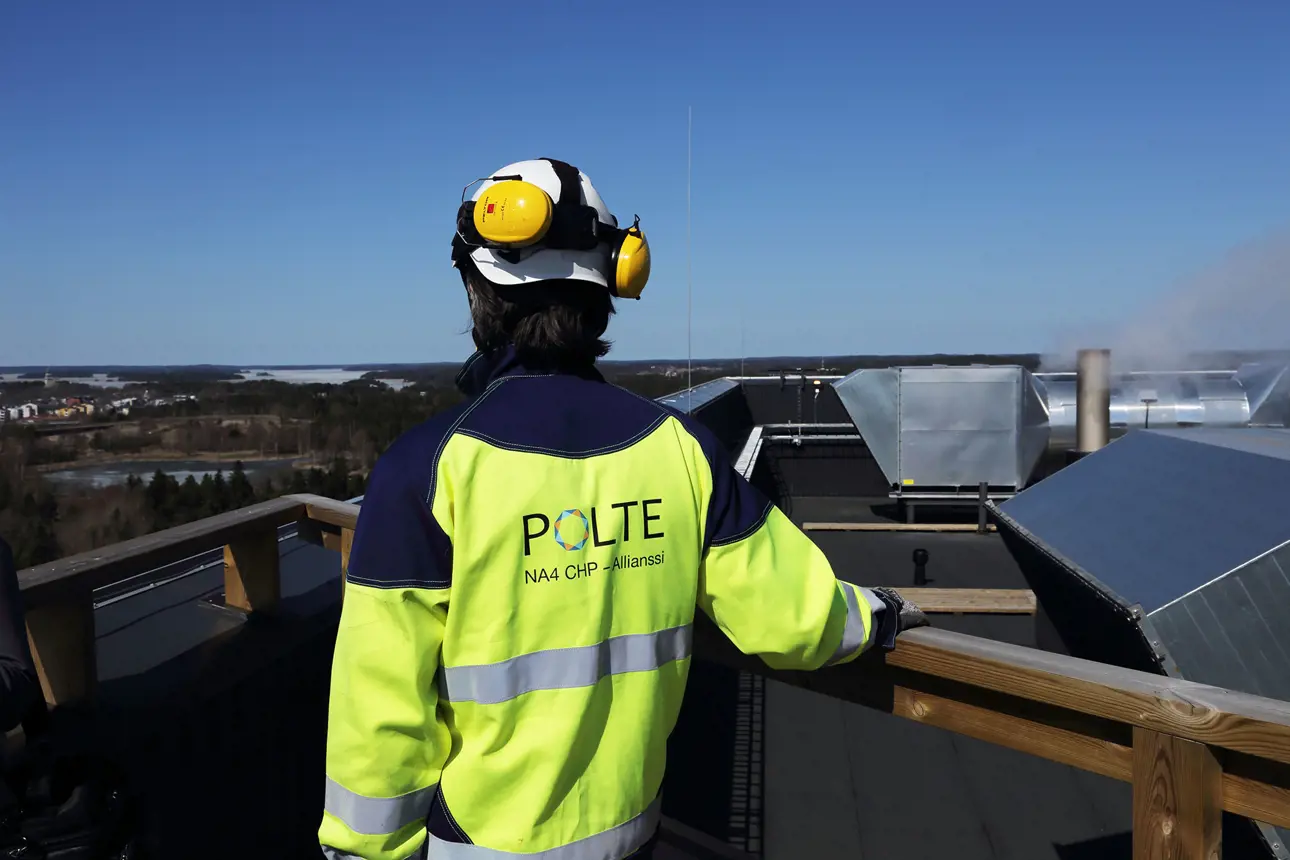
CHAPTER ONE New seaside multi-fuel power plant
TSE’s new seaside multi-fuel power plant in Naantali produces district heat and electricity for private customers and process steam for business customers in the Turku economic region. Commissioned in December 2017, the power plant is a prominent landmark for Naantali residents, so the exterior design of the plant also was a point of particular interest during the design phase.
Neles was chosen as the main supplier of the power plant’s control and automation valves used in the power plant’s condensate, water and steam processes.
CHAPTER TWO A design based on efficiency and high availability
“The previous plant had already accumulated over 300,000 operating hours, so it was clear that it had to be replaced with new capacity and a new plant would have to be built.” Flexibility and availability are important in power plant operations. “There must be flexibility in terms of the fuel selection and in terms of the plant’s operation and load fluctuation. We were also seeking very high availability for the plant,” Tapani Bastman*, CEO of Turun Seudun Energiantuotanto Oy, describes the targets of the plant’s operations.
* current CEO is Maija Henell
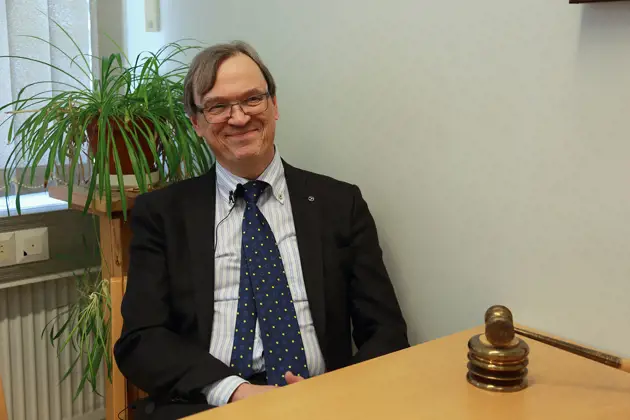
Tapani Bastman
Availability
and flexibility are important in power plant operations
CHAPTER THREE Valves secure plant reliability
The power plant process involves high pressures and temperatures, and the plant must remain on stream continuously. Control valves control temperature and pressure and thus keep the power plant’s process status correct and the plant operating efficiently. “Valves are just one part of the plant totality, but if there were a problem with the valves the entire plant would come to a standstill,” Heikki Jaakkola, Project Manager in the NA4 CHP project, explains the choice of the valve supplier.
Neles’ valve selection for power plants covers all process phases. The control and automation valves for the Naantali plant were a comprehensive delivery covering all critical power plant processes. The comprehensive delivery includes valves for low-pressure and high-pressure processes.
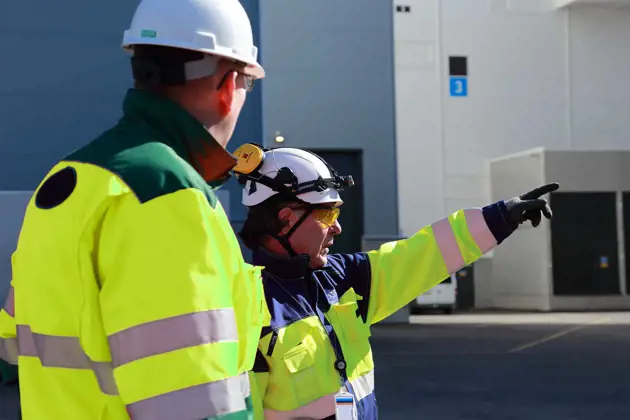
“We know that Neles is an experienced valve supplier, and we believe that we will get competitive products. An equipment supplier must be experienced, reliable and well-established. Obviously, the product also must be good. Neles has strong experience and their solutions are a good match for us. The boiler supplier had also chosen Neles’ valves for their own delivery,” Jaakkola continues. The power plant was also supplied with noise attenuating Neles Q-Trim technology because the power plant process is noisy and exceeds 85 decibels in some areas. Neles Q-Trim technology protects the process equipment by bringing the noise and the related vibration down to an acceptable level. The cost to operate the valves and the need for spare parts is reduced, thereby lowering the overall cost of the valves. “Naturally, we aim to limit the amount of noise whenever we can. We have guarantee values for all noise sources, and we’ve also set requirements for noise reduction. We have pursued various solutions to solve noise problems. Neles’ noise attenuating Q-Trim valves have been selected to protect the plant personnel; there are no residential areas in the plant vicinity.” “Collaboration with Neles has been easy. I’ve been very satisfied with Neles’ project expertise and delivery. They’ve kept the promises made,” says a pleased Jaakkola.
video
CHAPTER FOUR Environmentally pleasing, both visually and in terms of emissions
In 2018 TSE’s carbon dioxide emissions from energy production decreased by 420,000 tons per year. The longer-term strategic target is to pursue carbon-neutrality. Since 2019, the plant uses biofuel as the main fuel.
“We constantly monitor the plant’s emissions, the most critical of which are dust, sulfur and nitrogen. The plant’s CO2 emissions are monitored on an annual level, and they will decrease when we transition to the use of biofuel. In addition, we are participating in the regional air quality monitoring program, which is measuring the air quality more comprehensively. The program also covers emissions from traffic and industry and long-range transport of air-borne pollutants,” says Bastman.
Tapani Bastman is proud of the efficient, eco-friendly power plant and its stylish design. “The power plant facade was a great success; I’m pleased with the architect’s work. The good color selections contribute to the plant’s very pleasing look. The plant is highly visible in Naantali and has a big impact on Naantali residents. During the winter season, the plant also has attractive exterior lighting.”
FACTS Naantali power plant
- The multi-fuel power plant annually produces 1,400 gigawatt hours of district heat, 200 gigawatt hours of process steam, and 800 gigawatt hours of electricity.
- Commissioned in December 2017, the power plant partially replaces Naantali’s approximately 50-year-old coal-fired power plant.
- The plant is owned by Turun Seudun Energiantuotanto Oy. TSE’s main stakeholders are Turku Energia, Fortum Power and Heat, and the cities of Raisio, Kaarina and Naantali.
- Customers: Fortum, Turku Energia, Naantali, Kaarina and Raisio.
- Employees: 75
- Energy sources: biomass from forests, thinning logs, chipped poles and stumps, industrial by-products, such as bark and sawdust, straw, coal.
Text originally published in 2017, and slightly updated in April 2022, due to the company name change to Valmet.
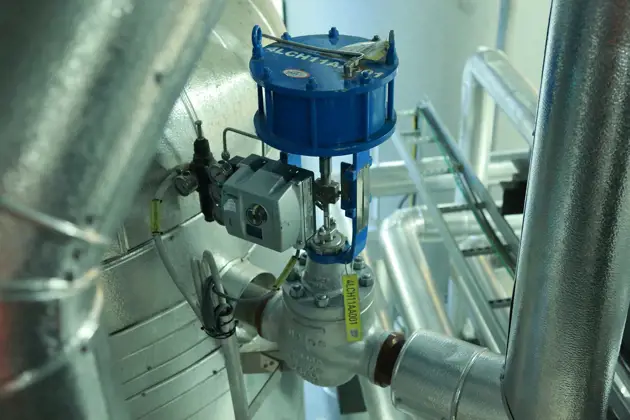
Neles’ delivery to the power plant
- Neles control and automation valve technology: ball, butterfly, and globe valves
- Neles globe valve technology is emphasized in critical power plant processes involving high pressures and temperatures
- Neles ND9000 valve controllers
- Neles Q-Trim noise attenuating technology
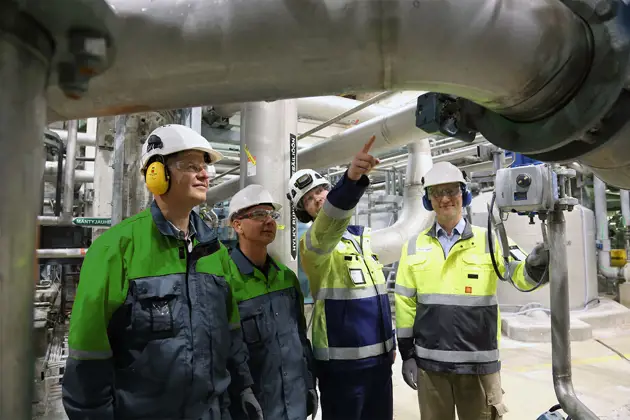
Subscribe to our newsletter
Subscribe now to flow control newsletter and receive the latest insights directly to your email.
Subscribe